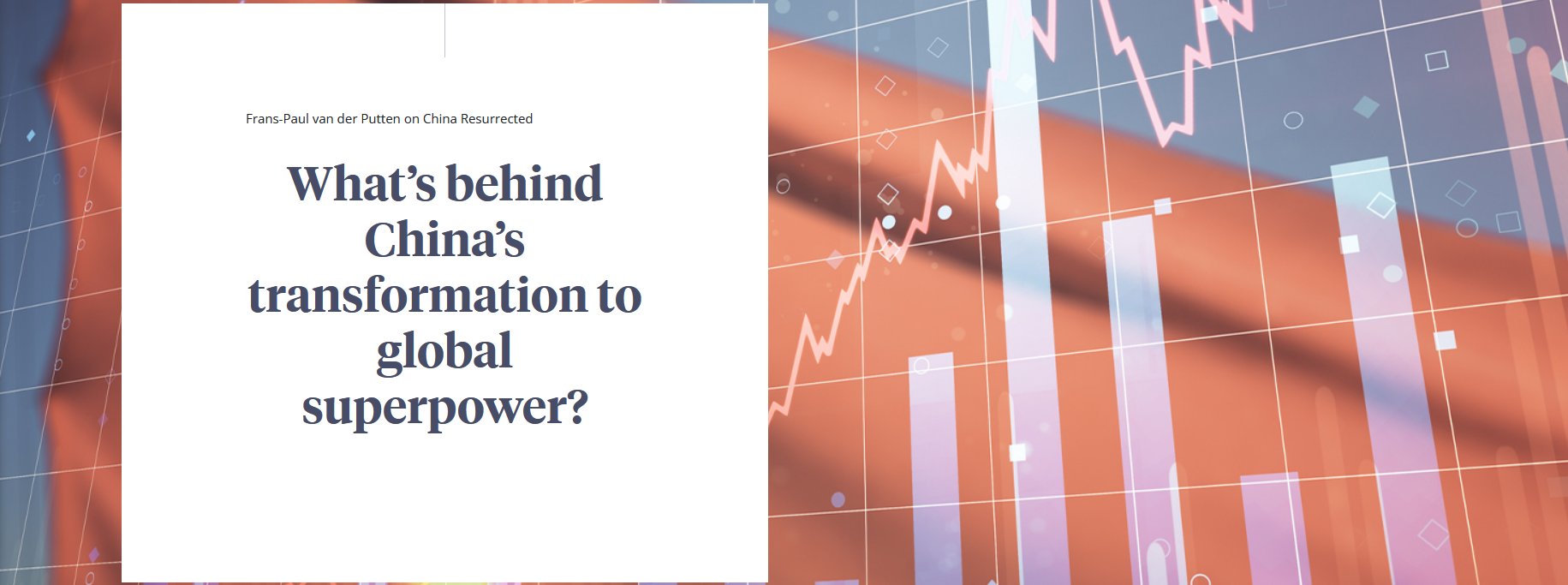What’s behind China’s transformation to global superpower? - Bloomsbury
From the target of foreign imperialism to leading geopolitical actor on the global stage, how has China become the superpower it is today? In this interview Frans-Paul van der Putten, author of China Resurrected, reveals which events in the last 200 years have shaped this country's political identity, why the West tends to underestimate Chinese capabilities, and how Frans-Paul predicts China's position will continue to evolve in future.
· What inspired you to write China Resurrected, and what do you hope readers take away from it?
I wanted to tell the story of how China became the powerful country it now is. It is a story that is both very entertaining and highly relevant to understanding the world as it is today. Being a historian and a geopolitical analyst, I combined a historical narrative with an analysis of contemporary geopolitics. What I hope the readers take away from it is a better understanding of China's behaviour as a great power.
· How do you define 'geopolitical' in this study?
The term geopolitical refers to power competition between states in relation to 'third factors'. Often these third factors are other states but they can also be geographic regions or features, cyber space or outer space. A geopolitical perspective is useful to study the modern history of China's foreign relations, because its contemporary rivalry with the United States affects so many other countries. But also because China's historical experience as a target of foreign imperialism has had a major impact on how its political identity has been evolving.
· Why have you chosen 1840 and the Opium Wars as your starting point? Why was this significant?
In 1840 a British expeditionary force attacked China in response to a conflict over the opium trade that had erupted between the two countries in the previous year. A follow-up attack was launched by Britain and France in 1857. Although China was defeated in both instances, these Opium Wars triggered a process in which China transitioned from a regional to a global geopolitical actor. China learned how to adapt to its international environment and very gradually built up its strength as a great power. This process is still ongoing.
· Is the West overestimating or underestimating China's ambitions and capabilities, in your view?
The West tends to underestimate Chinese capabilities while overestimating the threat China poses. For example, the US is trying to block China's access to advanced computer chips out of fear that China would use such technology to replace the US as the world's most powerful country. The result of this is that China is more, rather than less, likely to become a leader in technology and more determined to push back American influence in the world.
· How do you foresee China's role evolving over the next 20–30 years?
Currently the international order is changing fundamentally, as the United States is withdrawing from leadership in global governance while it remains a highly influential actor. I expect that China will try to continue to build its strength, while adapting to its external environment. The US is still strong enough to prevent China from becoming a regional hegemon in East Asia. At the same time, the US may become less threatening from a Chinese point of view. Not only is it no longer as powerful as it used to be, but, at least for now, the US is also moving away from actively promoting liberal values, such as human rights, as major norms in the international system. A possible outcome in the longer run could be that the geopolitical rivalry between China and the United States will become less intensive.
· How did the two World Wars affect China's international role?
The two World Wars were catalysts in the long process of China's geopolitical transformation. China participated in both wars on the side of the Allied Powers. Consequently, China was among the founding members of both the League of Nations and the United Nations. Prior to the First World War, China was not a geopolitical actor on the world stage. However, by the time the Second World War ended, China was a permanent member of the UN Security Council. Although it still had a long way to go to consolidate its newfound status as a leading power after 1945, the two World Wars created a world order that was far more favourable to China than the one that existed previously.
· What effect has the reunification of Hong Kong and Macau had for China and its resurrection?
The incorporation of Hong Kong and Macau into the People's Republic of China in 1997 and 1999, respectively, marked the end of Europe's imperial presence in East Asia. Britain, in particular, had triggered China's transformation into a modern world power when it defeated China in the First Opium War. The establishment of Hong Kong as a British colony was a direct outcome of that war. For the Chinese leadership, the acquisition of Hong Kong was an important indicator that China was on its way to becoming the kind of country that they had long envisioned: a modern great power that is accepted by, and does not need to fear, other major countries. The Hong Kong and Macau handovers also allowed China to focus on two other indicators: acquiring control of Taiwan and recovering China's traditional status as the leading power in East and Southeast Asia. Both have been and still are long-term aims.
· What's next for you?
I intend to write a book about China's historic and current relevance for the relationship between Europe and the United States.
Interview by Sofie Logan. Originally published 1 August 2025 on the website of Bloomsbury.

